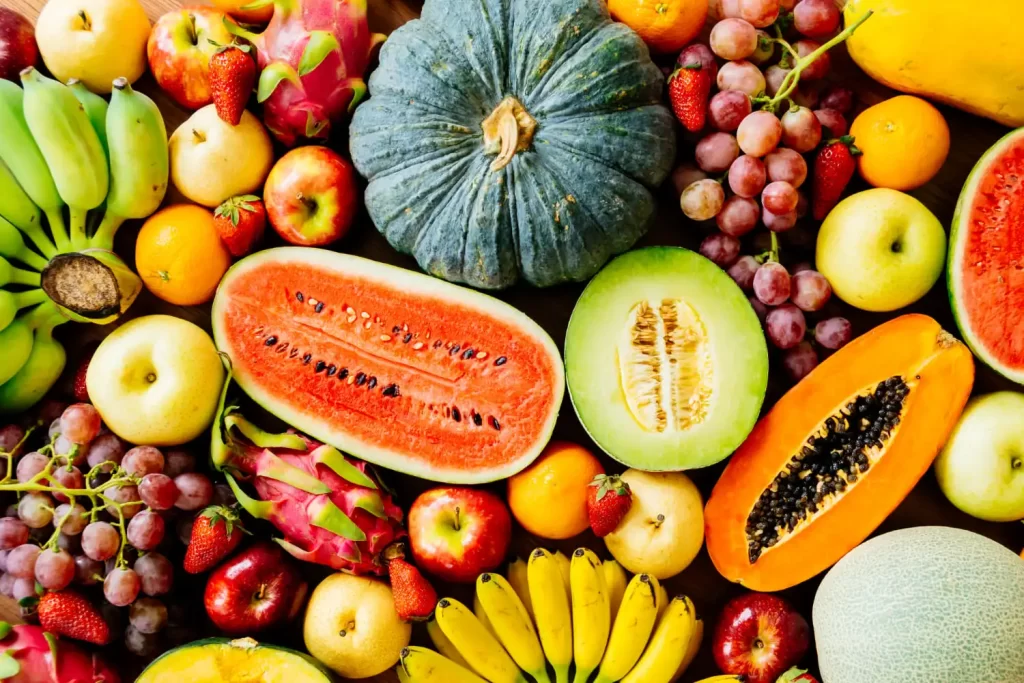Fructose, commonly known as “fruit sugar,” is a natural sugar found in abundance in fruits, vegetables and honey. In addition to providing natural sweetness, fructose offers health benefits when consumed in moderation. However, overconsumption can have negative effects on the body.
In this article, we will explore foods that contain fructose, its health benefits, and the risks associated with overconsumption.
Sources of Foods Containing Fructose
Fructose can be found in many different foods. Here are a few examples of sources of fructose:
1. Fruits
Fruits naturally contain fructose. Apart from providing sweetness, fruits are rich in vitamins, minerals, and fiber essential for health.
2. Honey
Honey is a natural sweetener that is high in fructose, along with other nutrients your body needs.
3. High-Fructose Corn Syrup
A common ingredient in sweetened beverages and processed foods, high-fructose corn syrup is one of the highest sources of fructose.
4. Vegetables
Some vegetables also contain fructose, but in smaller amounts than fruits.
Health Benefits of Consuming Foods Containing Fructose
Consuming fructose in moderation offers several health benefits:
1. Energy Source
Fructose is an important energy source for the body. When consumed, the body converts it into glucose, which serves as fuel for daily activities, thereby supporting stamina and meeting daily energy needs.
2. Additional Nutrients
Fruits rich in fructose not only provide sweetness but also supply essential nutrients such as vitamins, minerals, and fiber that support health.
3. Digestive Support
Many fructose-rich fruits are also high in fiber, which aids digestion by promoting bowel movements and preventing constipation.
Effects of Excessive Fructose Consumption
Despite its benefits, excessive fructose intake can lead to negative health consequences, including:
1. Increased Risk of Obesity
Fructose interferes with appetite control and reduces activation of the brain’s satiety center, which can lead to weight gain by causing unconscious overconsumption of food and calories.
2. Liver Issues
Excessive fructose can be detrimental to liver health. When the body receives too much fructose, the liver converts it into fat. If this process occurs excessively, the accumulated fat can lead to non-alcoholic fatty liver disease (NAFLD), a liver disorder that can progress to liver damage and even failure if left untreated.
When evaluating the healthfulness of foods, it’s important to consider not only the fructose content, but also other nutrients such as vitamins, minerals, fiber, protein, and healthy fats. For example, although they contain fructose, fruits are rich in beneficial nutrients that are important for overall health.
In general, fructose from fruits and other natural sources poses minimal risks when consumed wisely. However, excessive consumption of added fructose in forms such as high-fructose corn syrup should be avoided to maintain health.
Arummi Cashew Milk – A Healthy Choice for Managing Fructose Intake
In order to maintain a balanced intake of fructose, it’s important to choose healthy alternatives. One such option to consider is Arummi Cashew Milk.
Arummi Cashew Milk is made from high-quality cashews and is free of high fructose corn syrup, making it safe to consume. In addition, Arummi Cashew Milk is rich in essential nutrients such as protein, healthy fats, and vitamins that support good health.
Get Arummi Cashew Milk at your nearest supermarket now!









































